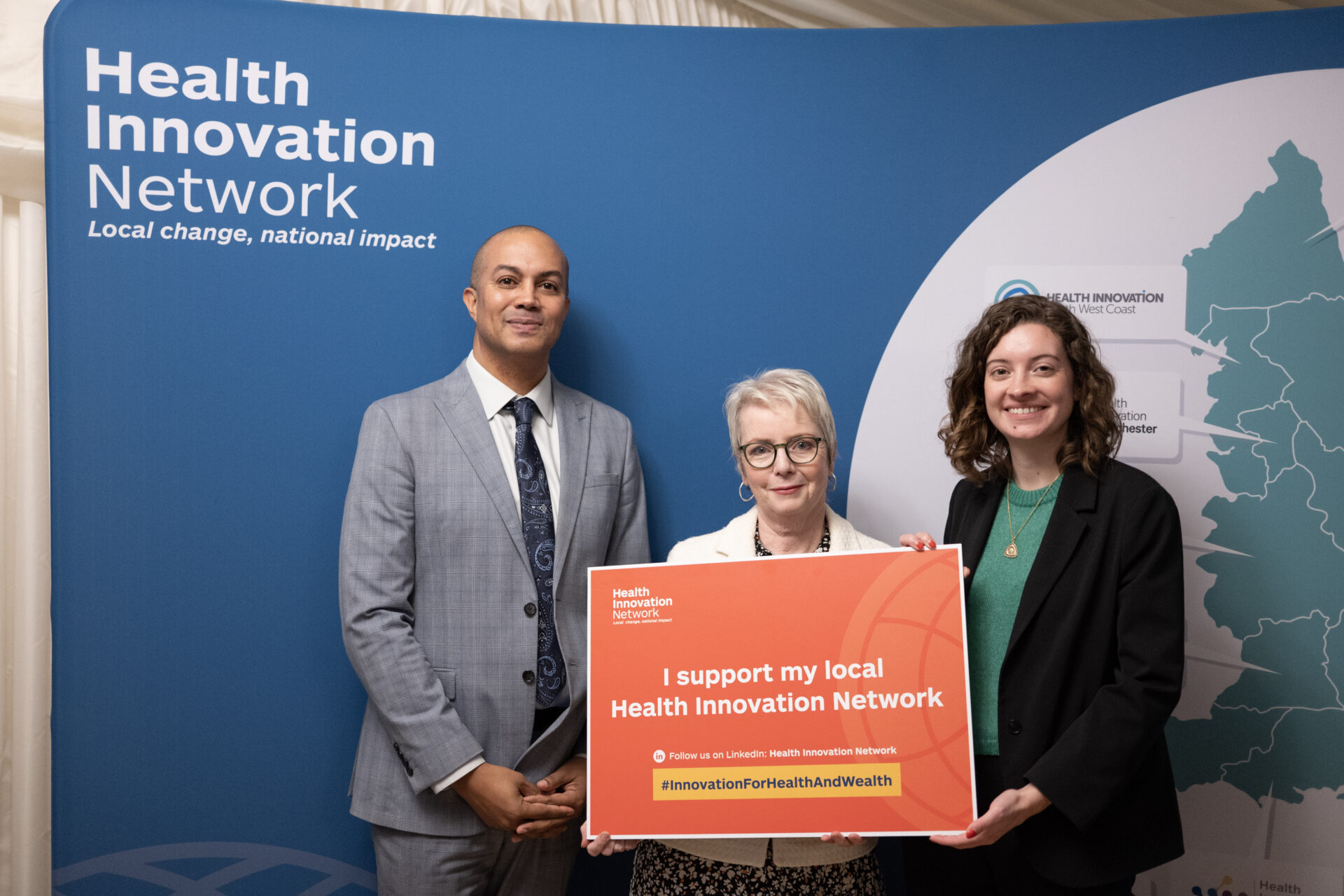Small Business Research Initiative (SBRI) Healthcare accelerates innovative technologies in the NHS and the wider health and social care system, tackling unmet health and care needs.
SBRI Healthcare provides funding and support to early-stage projects, enabling testing for business feasibility and technology development as well as to more mature products by supporting real-world implementation studies.
Four new funding opportunities for healthcare innovators are launching this month (July) for innovations that support Stroke services, Urgent & Emergency Care, Women’s Health and Antimicrobial Resistance (AMR).
All SBRI competitions are open to any innovation (e.g., medical device, in-vitro diagnostic, digital health solutions and AI solutions, behavioural interventions, and service improvements) that meets the entry criteria and the challenges described in the criteria brief. Find out more information below:
1. Stroke: Phase 3 funding competition
Stroke is a medical emergency requiring rapid diagnosis and hyperacute treatment often followed by complex long-term consequences that need to be tackled at different levels and at different times after onset, often for many years.
Up to £500,000 will be made available for innovations that help address the three challenges identified via consultation with clinicians and other stakeholders working in provision of care across the spectrum and review of the James Lind Alliance Stroke Priority Setting Partnership for Stroke Research:
- Early diagnosis
- Rehabilitation
- Life after stroke.
Find out more and apply for the Stroke: Competition 26, Phase 3 funding competition. Applications open on 31 July 2024 and close on 18 September 2024 at 1pm.
2. Urgent & Emergency Care: Phase 3 funding competition
Pressure on urgent and emergency care services is growing. NHS England’s Delivery Plan for Recovering Urgent and Emergency Care Services, published in January 2023, sets out the ambition to develop a system that provides more and better care in people’s homes, gets ambulances to people more quickly when they need them, sees people faster when they go to hospital, and helps people safely leave hospital having received the care they need.
Increased pressure also impacts staff and the NHS Long Term Workforce Plan published in June 2023 sets out the strategic direction at local, regional and national level to address current workforce challenges and calls for action in three priority areas (training staff, retaining staff, and reform) to provide (among other priorities) timely urgent and emergency care.
Up to £500,000 will be made available for innovations at an advanced stage of development that help address the three priority areas within Urgent & Emergency Care:
- Health and Care outside of Hospitals: Accessing the Right Care and Reducing Demand
- Reducing Length of Stay and Improving Discharge
- Supporting Workforce.
Find out more and apply for the Urgent & Emergency Care: Competition 26, Phase 1 funding competition. Applications open on 31 July 2024 and close on 18 September 2024 at 1pm.
3. Women’s Health: Phase 1 funding competition
A need for a greater focus on women’s health, addressing the unique challenges women face across their lifespans, and to recognise and act on inequalities has been identified by the Women’s Health Strategy for England, The Scottish Women’s Health Plan, and the Women’s Health in Wales discovery report.
Under the overall theme of “Women’s Health”, Competition 25, Phase 1 invites early-stage innovations in the following three priority areas:
- Gynaecological Conditions and Hormonal Health
- Mental Health
- Chronic Conditions and Long-term Health.
Up to £100,000 is available for Phase 1 contracts for technical and commercial feasibility testing and contracts last for six months. Successful Phase 1 projects are entitled to apply for Phase 2 contracts for prototype development and early clinical evidence which are usually worth up to £800,000 (NET) over 12 months, subject to budget availability.
Find out more and apply for the Women’s Health: Competition 25, Phase 1 funding competition. Applications open on 17 July 2024 and close on 28 September 2024 at 1pm.
4. Antimicrobial resistance (AMR): Phase 1 funding competition
AMR is a significant threat to public health. The NHS Long Term Plan identifies antimicrobial resistance as one of five priorities requiring NHS action on prevention, and reiterates the UK’s 20-year vision for AMR which outlines the aim for a world in which antimicrobial resistance is effectively contained, controlled and mitigated.
Under the overall theme of “Antimicrobial resistance (AMR)”, Competition 25, Phase 1 invites early-stage innovations in the following four priority areas:
- Point of care diagnostics, monitoring, and susceptibility testing
- Prescribing decision support and risk stratification
- Novel care delivery methods
- Infection prevention and control (IPC).
Up to £100,000 is available for Phase 1 contracts for technical and commercial feasibility testing and contracts last for six months. Successful Phase 1 projects are entitled to apply for Phase 2 contracts for prototype development and early clinical evidence which are usually worth up to £800,000 over 12 months, subject to budget availability.
Find out more and apply for the Antimicrobial resistance (AMR): Competition 25, Phase 1 funding competition. Applications open on 17 July 2024 and close on 28 September 2024 at 1pm.
Supported by the Network, the SBRI Healthcare funding competitions are funded by the Accelerated Access Collaborative (AAC), which brings together industry, government, regulators, patients and the NHS.

Join us on 11 and 12 June in Manchester to find out how the Health Innovation Network is improving health and driving wealth through health innovation. This year we’ll be joined on our stand by 18 Network-supported innovators, showcasing innovations which are helping to deliver the Government’s three shifts for the NHS and solve some [...]

The Health Innovation Network is delighted to announce the launch of Innovation Insights, a brand-new webinar series designed to highlight the latest in health innovation, offering attendees valuable insights into the adoption and spread of innovation within the health and care landscape. Each interactive webinar will feature: Expert presentations: Delivered by thought leaders across [...]

The Health Innovation Network, at an event sponsored by Sarah Coombes MP, brought together parliamentarians including Health Minister Karin Smyth MP and Chair of the Science, Innovation and Technology Committee, Chi Onwurah MP to meet with six innovators supported by health innovation networks across the country and their NHS partners. At the Meet the Innovators: [...]






